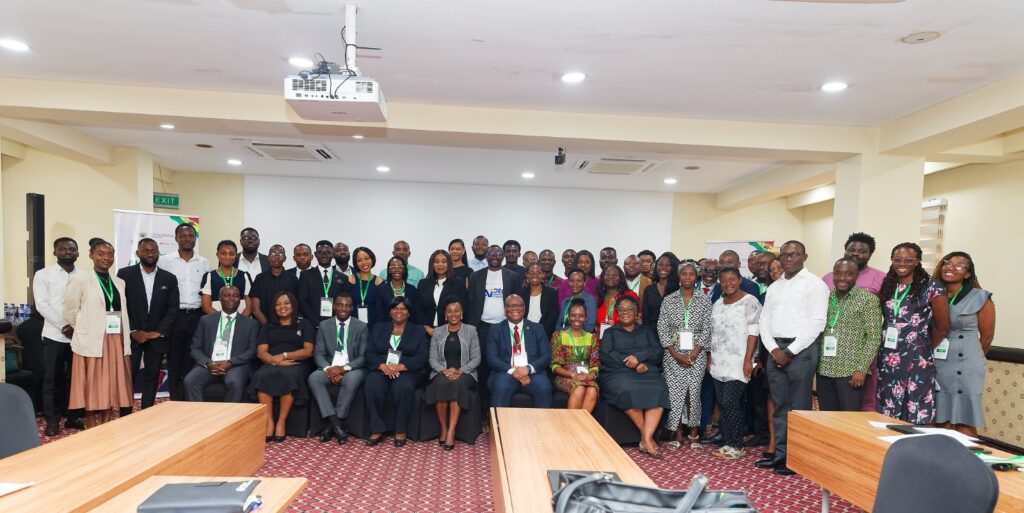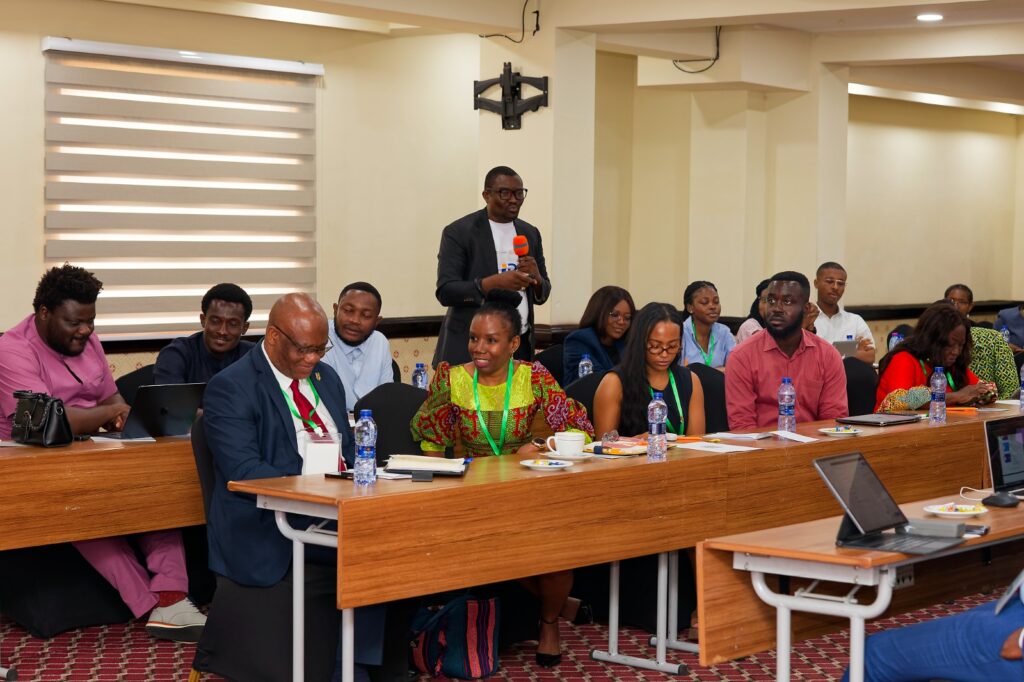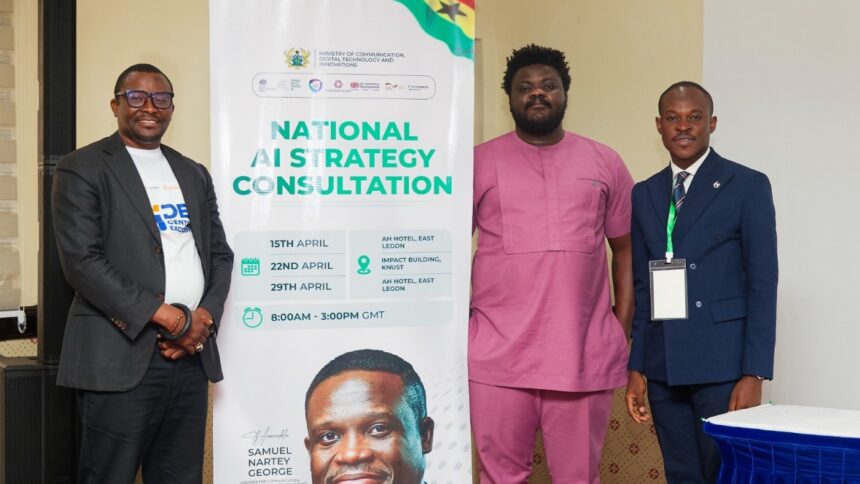During the just-ended Ghana National Artificial Intelligence (AI) Strategy Consultation organized by the Ministry of Communication, Technology and Innovation, with support from the Responsible AI Lab (RAIL-KNUST), Mr. Emmanuel Gbeve, Chief Technology Officer (CTO) of AIDEC Digital and Senior Research Fellow at the AIDEC AI Centre of Excellence, brought thought leadership to the fore with critical insights for shaping Ghana’s AI future.
Held at the AH Hotel in East Legon, the consultative session was dedicated to engaging legal practitioners and judges on the proposed National AI Strategy (2025–2035). Mr. Gbeve delivered a compelling presentation titled “Unlocking Ghana’s Potential: The Call for an AI Strategy to Spearhead the 4th and 5th Industrial Revolutions.” He articulated the urgent need for Ghana to develop a robust, multi-dimensional AI strategy anchored on pillars such as infrastructure readiness, data governance, talent development, ethical use, and responsible innovation.

As part of his contributions, Mr. Gbeve emphasized that the proposed 10-year AI strategy should be revised to a medium-term 5-year plan, given the rapidly evolving nature of AI technologies. He argued that a more agile, shorter-term strategy would allow Ghana to remain flexible and responsive to global AI advancements while ensuring timely review and course correction.
Further, he called for the reconsideration of the proposed “Responsible AI Office” outlined in the draft strategy. Instead, he advocated for the establishment of a “Ghana AI Institute (GAII)”—a body he described as having a more developmental and progressive orientation. According to Mr. Gbeve, while a Responsible AI Office might serve a regulatory function, it risks being overly reactive and potentially restrictive. A national AI institute, on the other hand, would nurture innovation, support research, drive AI adoption across sectors, and position Ghana as a hub of AI excellence in Africa.

Representing the AIDEC AI Centre of Excellence, Mr. Gbeve reaffirmed the Centre’s commitment to AI research, advocacy, and training tailored to Ghana’s needs. He highlighted AIDEC’s role as one of the emerging innovation hubs helping to drive AI integration across fields such as education, finance, agriculture, and the legal system. His vision echoed the draft strategy’s core objectives but also pressed for sharper, bolder institutional design and more agile planning frameworks.
The Responsible AI Lab (RAIL) echoed the importance of these legal consultations, noting the critical role of the judiciary and legal experts in helping Ghana build an AI governance model grounded in justice, fairness, and accountability.

As Ghana moves closer to finalizing its National AI Strategy, Mr. Gbeve’s contributions underscore the importance of foresight, flexibility, and institutional innovation. With continued leadership from stakeholders like AIDEC Digital, the nation is well-positioned to unlock transformative benefits from AI in a way that is responsible, inclusive, and forward-looking





 /home/afripjzx/technewsglobal.net/wp-content/themes/foxiz/templates/popup.php on line 167
/home/afripjzx/technewsglobal.net/wp-content/themes/foxiz/templates/popup.php on line 167